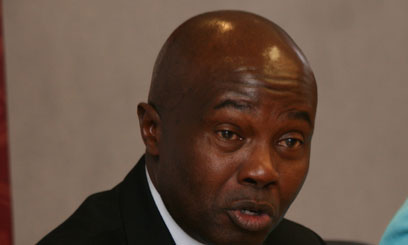Kenya Private Sector Alliance (KEPSA) chairman Patrick Obath said once in place, the mechanism will monitor the progress of key regulations such as the Common External Tariff (CET) Resolution and removal of Non Tariff Barriers (NTBs).
“Legislation is going to come up whereby if a government wishes to impose anything on areas that have already been completed there are going to put up a mechanism that allows for discussion to take place before a government can implement that,” he said.
The issuance of work permits has been a hindrance in the facilitation of the free movement of labour in the region, though Kenya and Rwanda have lifted restrictions.
“In terms of the movement of services all the countries have issues. In terms of the Common External Tariff Uganda still has issues requiring protection for their industries. Non Tariff Barriers exist in all five countries, but the worst offender is Tanzania,” Obath revealed.
However, he acknowledged that at least 90 percent of regulations meant to ease the movement of labour, capital and goods throughout the region are complete, especially with the implementation of the East African Customs Union and Common Market Protocol.
The private sector contributes at least 80 percent to the regional economy in terms of wealth creation, poverty reduction and production of goods and services.
EAC Secretary General Richard Sezibera said the EAC has made efforts to implement monitoring and evaluation mechanisms in all the partner states to ensure regulations are being put into practice.
“We have common market implementation committees in every country and at the regional level, which we set up this year. This is another monitoring and evaluation mechanism. We are increasingly involving the business community to make sure these barriers are being dealt with,” he explained.
With the Common Market to be fully functional by 2015, Sezibera said efforts such as the Monetary Union Protocol are critical as the region moves towards a single Customs Union.
“Negotiations were taking place in Bujumbura last week. We are about 67 percent of the way. I am hopeful that by the end of this year we will have a protocol,” Sezibera said.
As far as the Economic Partnership Agreements (EPA) negotiation the Secretary General said a team is currently in Brussels carrying talks forward.
“There are some new generation issues that have been put on the table and not been concluded under the Doha round and we are having a discussion on how to handle these before including them into the EPAs,” he revealed.
Sezibera doesn’t expect negotiations to be finalised by July this year as earlier expected with some new issues arising on the European Union (EU) side.
The Secretary General was in Nairobi to launch his Regional CEO Forum to discuss how to improve the business and trade environment to increase competitiveness, productivity and boost economic growth in the region.



































